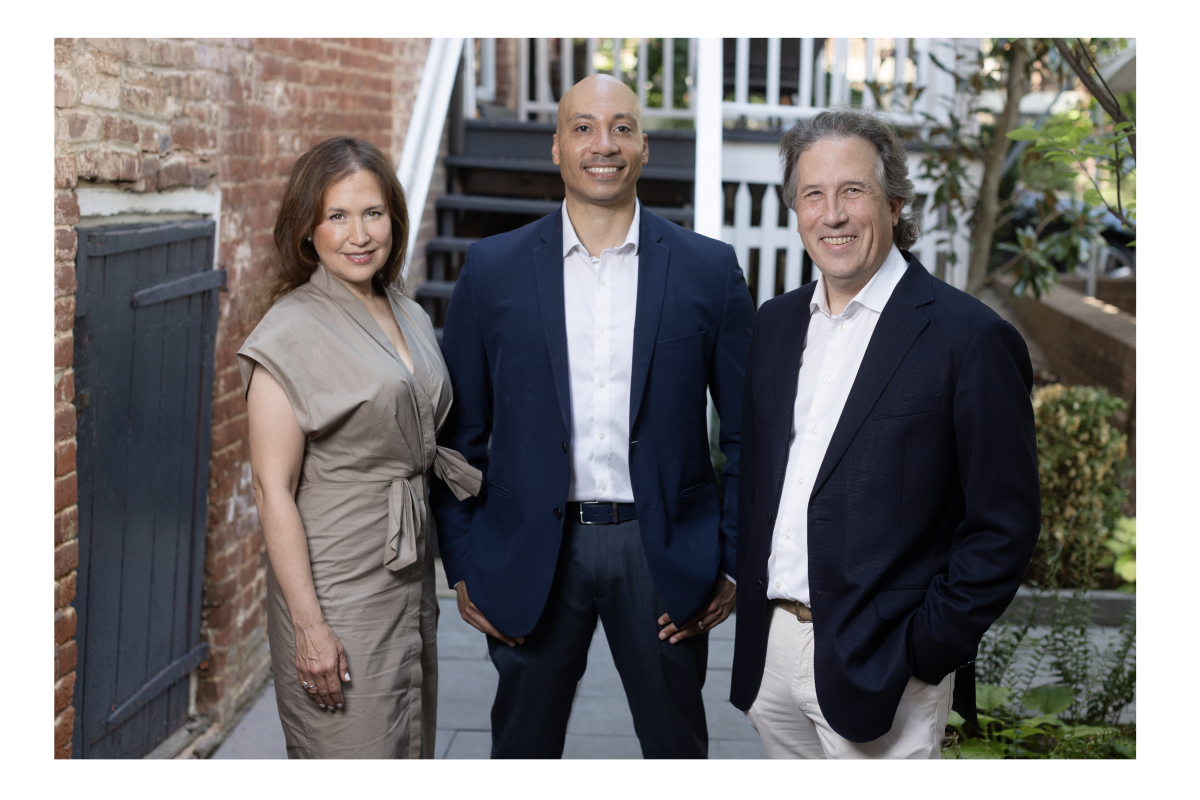Big Things, Small Packages
Renowned biomedical researcher Evan Scott, PhD, uses “life-changing” to describe his move to Charlottesville and the collaborative discoveries fostered by UVA’s Institute for Nanoscale Scientific and Technological Advanced Research (nanoSTAR), which he came here to lead. He isn’t exaggerating—both have been transformative.
Scott joined the University’s faculty in August 2024 after a decade at Northwestern University. As the David Goodman Family Bicentennial Professor in Nanomedicine and Thomas A. Saunders III Family Jefferson Scholars Foundation Distinguished University Professor, he holds joint appointments in the School of Medicine and the School of Engineering and Applied Science as a professor of biomedical engineering.
MICROSCOPIC PARTICLES, ENORMOUS POTENTIAL
Scott uses nanotechnology—designing and manufacturing minute devices and structures—to fight disease from a biomedical engineering perspective. “At the core, I’m an engineer, so that’s my home base,” Scott said. As head of nanoSTAR, Scott is continuing and expanding work begun by the institute’s previous director, the late Mark Kester.
“Our goal is to serve as UVA’s go-to resource for using nanotechnology in the biomedical space,” Scott said. The nanoSTAR lab will eventually move to the Paul and Diane Manning Institute of Biotechnology, a new biomedical research, development, and manufacturing facility scheduled to open at UVA in 2027.
Scott groups nanoSTAR’s efforts into three categories. Its team of researchers employs a library of nanoparticles—microscopic drug delivery vehicles undetectable by the human eye—that other UVA researchers can use in developing vaccines or drug formulations. Scott says the second critical aspect of the lab is education, providing opportunities for students to develop and apply nanoparticles. Lastly, he intends to grow nanoSTAR’s translational research program by helping scientists assess the usefulness and commercial feasibility of their nanotechnology-based discoveries.
Scott and his team are developing new nanomaterials and drug delivery methods with a focus on directing nanoparticles to specific parts of the body and controlling their interactions with the immune system.
PROMISING PROGNOSIS
The resulting treatments for cancer and other diseases could save, extend, and improve patients’ lives at UVA Health and beyond. “We have a very close affiliation with UVA Cancer Center,” he said, “so cancer therapeutics is a key focus for us. How do you avoid toxicity? How do you target therapeutics to solid tumors and increase their efficacy?”
This work intersects with Scott’s immunotherapy focus. “We aim to develop nanoparticle formulations that modulate the immune system to enhance immunotherapy, a rapidly advancing cancer treatment strategy,” said Scott. Another objective of his team is to develop cancer gene therapies that target specific cells within tumors, forcing them to produce and locally release tumor-fighting molecules. He currently has an early-stage startup company, SNC Therapeutics Inc., focused on clinical translation of these gene delivery systems, which has received initial funding from the large pharmaceutical company AbbVie Inc.
Scott also investigates the treatment of infectious diseases. One currently under the radar is Chagas disease, caused by an infectious parasite rapidly making its way from South America through the United States via its primary insect host, the triatomine or “kissing” bug. Exposure to the insect and the parasite it carries can, over a period of years, cause inflammation that leads to heart failure.
“We're using nanotechnology to strategically target both the latent parasite and the heart inflammation at the same time,” he said.

AN EASY SELL
An award-winning researcher and prolific academic author such as Scott would be prized by any top-level research institution. So, what brought him to UVA?
Philanthropy is one reason. David Goodman, PhD, who received his doctorate in pharmacology at UVA in 1993, helped endow Scott’s School of Medicine professorship through a gift from the Morris & Rosalind Goodman Family Foundation. As executive chairman of the Canadian pharmaceutical company Pharmascience, Goodman has also supported and collaborated with nanoSTAR through an academic-industrial partnership.
“UVA’s strengths in nanotechnology and drug discovery and development are well-known. I look forward to the next phase of nanomedicine research, education, and innovation with Evan Scott leading the program,” said Goodman.
Scott is also supported by the Jefferson Scholars Foundation, which funds his University Professorship at the School of Engineering, and UVA Cancer Center.
“When we apply for a grant to the National Institutes of Health, for example, it can take up to a year to receive the funding and start working on the project, so having discretionary funding was life-changing,” Scott said. “When I or someone in my lab has an idea, we can start testing it and gathering preliminary data immediately. As a scientist, I couldn't turn down this rare opportunity.”
Scott also likes the proximity and collaboration between UVA’s Schools of Engineering and Medicine. The fact that biomedical engineering is a joint department within both schools is “fantastic,” he said. “Unique, actually.”
Another draw was the opportunity to once again work with the deans of the two schools. “Jennifer West [dean of the engineering school] is fantastic,” Scott said. “She's a biomaterial scientist, which is my primary field of research. I've been studying her work and meeting her at conferences since I was a grad student. And I know Melina Kibbe [dean of the medical school] from her time at Northwestern. We were both in the Simpson Querrey Institute for BioNanotechnology, and I was extremely impressed by her work there. They're both really great people who get things done.”
Other important people in his life also influenced Scott’s move to Charlottesville. “I'm originally from Baltimore, so I have a lot of family there and also in Virginia,” he said. “My two daughters have never seen their cousins or even their great-grandmother, so it was really enticing to come back to this area. It’s just a great place to be and raise a family.”
Life-changing, indeed.
A version of this article appears in the Spring 2025 issue of Envision from UVA Advancement Communications.

